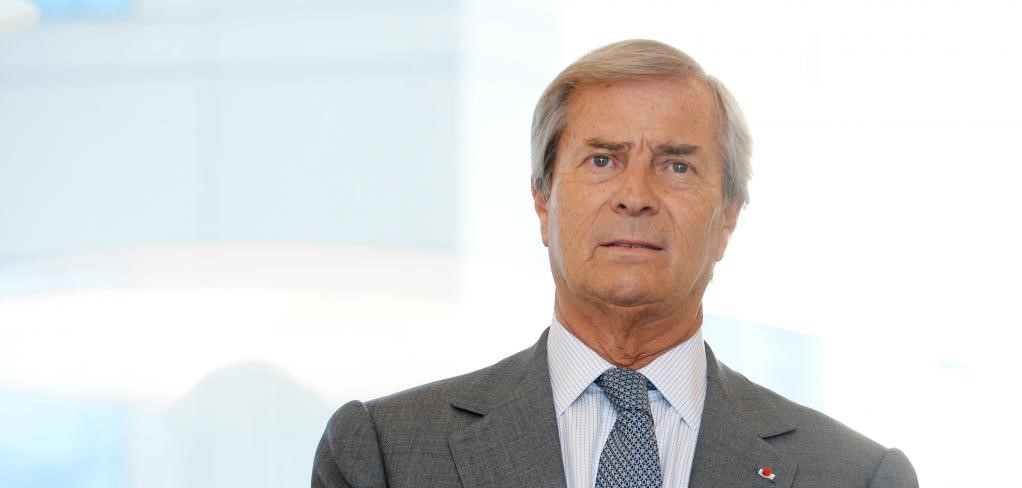France, Africa, and corruption
April 26, 2018 | Expert Insights

Vincent Bolloré, head of the multinational Bolloré Group, is under investigation for the bribery of foreign public officials. Bolloré may have been involved in a quid-pro-quo arrangement with Guinean President Alpha Condé and Togolese President Faure Gnassingbé.
Background
The Bolloré Group was founded in 1822 as a paper manufacturing firm. The company was bought by Edmond de Rothschild investment bank in the 1970s after it neared bankruptcy. It was brought into prominence by Vincent Bolloré, who is now President and CEO. Bolloré, who bought back the company in 1981 and turned it into a global conglomerate, has become a symbol of French industrialism. He is one of the most well-known French corporate raiders, due to the acquisitions that enabled him to rebuild his family holding company.
Headquartered in Puteaux, France, Bolloré Group is now one of the 500 largest companies in the world. It has controlling stakes in communications group Havas, and media conglomerate Vivendi, which owns the Universal Music Group. Bolloré Group was listed on the Paris Stock Exchange in 1985, and the majority interest of the Group's stock is controlled by the Bolloré family through an indirect holding structure. It is involved in three key sectors: Transportation and Logistics, Communication, and Electricity. It has a number of financial assets including plantations and investments. In 2016, the company’s revenue was approximately 10.1 billion euros ($11.1 billion). Vincent Bolloré is worth approximately $6.33 billion.
Corruption in France
According to independent anti-corruption portal GAN, the French Penal Code “criminalizes active and passive bribery, the bribery of national and foreign officials, and gifts and facilitation payments.” The Sapin II law, which entered into force in June 2017, was intended to address transparency and corruption, particularly with regards to influence or bribery of foreign nationals. It gives the French judiciary extraterritorial effect.
France is the former coloniser of a number of African countries, including Algeria, Tunisia, Ivory Coast, Benin, Mali, Guinea, Senegal, Togo, Gabon, and Djibouti, among several others. Despite granting independence to these colonies in the 1960s, France has maintained its political influence in numerous African countries, in what was known as La Françafrique. While “La Françafrique” is thought to have ended in the late 80s, France is still criticised by some for perpetuating a neo-colonial relationship with these nations.
In recent years, multiple French businessmen have been accused of corruption in Africa. The most prolific of these cases was that of Gabon ex-President Omar Bongo. Former President Jacques Chirac, and now-retired politicians Jean Marie Pen and Dominique de Villepin have been accused of bribery in Gabon. Earlier this year, former French President Nicolas Sarkozy made the news after he was charged with corruption, misappropriation of Libyan funds, and unlawful campaigning. It was alleged that Sarkozy accepted approximately $50 million in funds from former Libyan President Muammar Gaddafi in 2006.
Analysis
Vincent Bolloré has been detained by police as part of an investigation on bribery in the West African nations of Guinea and Togo. Bolloré is reportedly close friends with former French President Nicolas Sarkozy, who is currently under investigation himself over alleged misuse of election funds.
Havas, one of the Bolloré Group subsidiaries that was recently sold to Vivendi, has allegedly been involved in quid pro quo with African leaders. Havas is run by Bolloré son Yannick Bolloré, who recently also succeeded his father as Chairman of the supervisory board at Vivendi. French police are investigating whether Havas provided discounted communications services to Guinean President Alpha Condé and Togolese President Faure Gnassingbé prior to elections, in return for port concessions.
In 2009 and 2010, Bolloré Africa Logistics Company received port concessions in Lomé port in Togo, and Conakry in Guinea. Francis Perez, president of the Spanish hotel and casino firm, Pefaco Group, has also been charged with corruption for ties to this issue. Pefaco has been under investigation for two years.
Bolloré has denied all accusations. “The Bolloré Group formally denies that its subsidiary company SDV Africa has committed irregularities,” it said in an official statement. “The services relating to this invoicing were carried out in full transparency.” It added that the Logistics division “invested in Africa a long time before the takeover of Havas for port concessions whose success depends on huge investments and requires high-level expertise”.
Bolloré SA is one of the largest port operators in Africa. According to Bloomberg, it has a “near monopoly” on ports in West Africa. Bolloré Group has a number of other interests in Africa, including in rail industry. It also has approximately 187,000 hectares of plantations (largely oil palm and rubber trees) in Africa and Asia.
José Ugaz, Chair, Transparency International has spoken about widespread corruption in Africa, noting, “Corruption creates and increases poverty and exclusion. While corrupt individuals with political power enjoy a lavish life, millions of Africans are deprived of basic needs like food, health, education, housing, access to clean water and sanitation.”
Assessment
Our assessment is that corruption and white collar crime is expansive and deters development in emerging economies. Bolloré’s alleged role in bribing officials in Togo and Guinea could have undermined the developing democracy in these nations. As stated previously, we believe that large conglomerates must take personal responsibility in not promoting corruption. African nations are already amongst the most exploited countries in the world. Such instances demonstrate the need for mechanisms that prevent “state capture” by powerful corporations.
Read more: Taking down corruption in South Africa








Comments